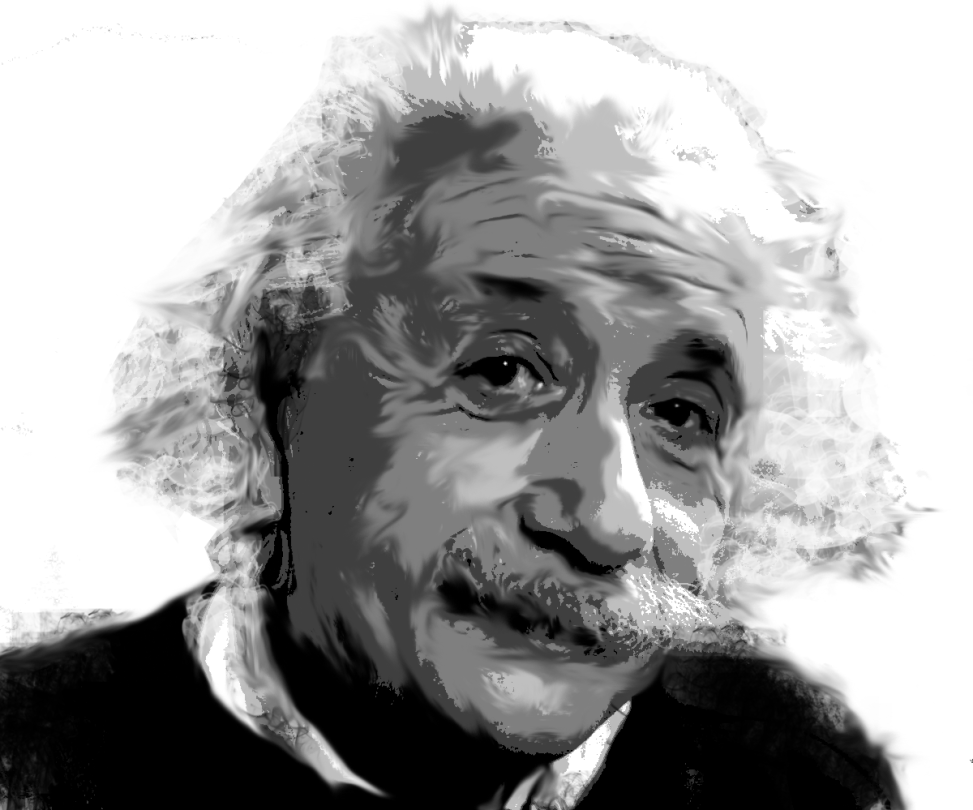I have spent a bunch of my recovery watching biographies, and it struck me about Einstein, that his mode of working and philosophy is the exact opposite to what is taught at schools. He spent hours focussing on flights of fancy, and literally years just musing about daydreams as a child would.
Then after putting forward a crazy theory, then he worked on the maths (he said he would find 99 mistakes, before finding the correct answer – his diaries have pages and pages of errors), and then 10 years after that finally getting other people to help him
He was also really social and his likability and his was a core part of his success also, and this matter does not seem to be as commonly discussed. It is emotional skills of interaction which got Max Plank to hire him, for him to convince Astronomers to help him, etc.
The relationship with his wife, and the (I believe from the evidence that I have seen that she had a far more pivotal role than just a sounding board) – but the fact that that his 1905 “Miracle year” when he released 4 revolutionary papers, were well within this timeframe.
Even if she had less of an impact, the Greeks had a view on genius, that it was not something which a person owns (I wish I could find the article I read about this! – it may have been a TED talk), but something which they discovered, and something which a muse helps to discover also – I think that this really is a valuable part of the thinking and creativity process.
As far as his thinking process he spent a lot of time walking and talking, as well as active relaxation (playing violin), and this often quietens the logical mind to give the much deeper and more powerful subconscious more space to solve the actual problem – a modern approach to this is to spend around 5-10 minutes focussing on the problem, consciously understanding the detail and grasping the underlying problem. THEN picking up something else (sudoku / word finders), for the next 15 mins or so, and then coming back to the problem. This method has found to dramatically help problem solving.
Many have marvelled how on earth he was able to produce so much output in 1905, while working fulltime at the patent office – one theory was that it was actually seeds of ideas while he was processing these mundane administrative tasks (eg how to synchronise clocks on the train stations etc), which were seeding random concepts and thoughts which ultimately was allowing his subconscious creativity to be working alongside while he processed the patents.
The skills seem be
- Concerted childlike daydreaming (where in schools are “daydreaming lessons” – at least for theoretical physicists!)
- Crazy imagination
- A dislike of authority, and strong rebellious and questioning manner (he was a terrible student because of this)
- A strong visual modality
- A strong focus of thought (some suggesting he may have been Autistic due to the days and years of single minded focus, though I feel that due to his advanced emotional skills that this is less likely)\
- Social skills and being likable.
His Brain was much, much larger in the mathematics region of the brain, and this may have been that he was born that way, or simply a function of the sheer amount of use he gave it.
There are also many studies regarding the correlation between music (which he learned from a very young age), and mathematical skill.
There were (and for many other scientists such as Faraday) massive emotional and social status pressures – with huge “win / lose” models, eg either he is a genius or a loser, surely a softer more accepting and less dogmatic and ego driven model could surely be so much better for fostering a broader and more fertile range of crazy theories, which over time similar to the evolution model, could yield far more discoveries.
Don’t get me wrong, it was this competition and desire for recognition which drove so many of these (Faraday trying to break into Science, Newton hating Hook, and Einstein wanting to actually get a job, and be a scientist), but I just cannot see that this deep emotional turmoil and jostling for ideas surrounding the process, just can’t be helping things.
Creativity is infinite, and is such a greater force than raw intelligence which can process ideas, and make decisions, but raw intelligence cannot create truly amazing ideas without creativity. It is sad that there are not regularly referred to standardised creativity tests, and it is a real shame that creativity is deemed a lower status skill when compared to critical thinking or raw intelligence.
These were some of the videos I have watched about Einstein:
http://youtu.be/YgpD4XZP0uM
http://youtu.be/ZaKPuvQ2Liw
http://youtu.be/P8DrxzkwnmA
